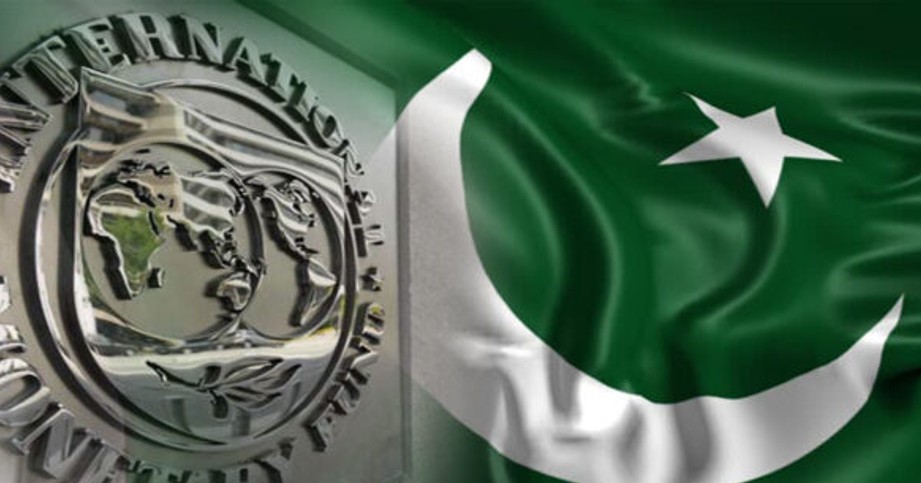By Staff Reporter
ISLAMABAD: The International Monetary Fund has urged Pakistan to continue its monetary tightening cycle to rein in inflation and support the exchange rate, after approving a new $3 billion loan for the country last week.
The IMF staff report, published on Tuesday, commended Pakistan for hiking its policy rate to 22 percent on June 26, but warned that more increases may be needed in the coming months to bring inflation within the central bank’s target range of 5-7 percent by the fiscal year 2026.
“Inflation has proven to be quite stubborn in Pakistan,” the report said, attributing it to factors such as currency depreciation, supply shocks, and fiscal slippages. “The tightening cycle should continue if needed to reduce inflation and facilitate external rebalancing.”
The IMF said a higher policy rate would help curb inflation expectations and achieve the State Bank of Pakistan’s inflation objective over the medium term. It also called for phasing out the refinancing schemes that provide cheap credit to certain sectors and strengthening the independence of the central bank.
The Fund said a tighter monetary policy stance was critical to support external sector rebalancing through the exchange rate, which has been allowed to float freely since May. It said the currency adjustment had helped improve Pakistan’s external position and reduce its current account deficit.
“The SBP agreed to maintain a tight monetary policy stance—higher rates and prudent use of liquidity injections—as needed, given incoming data, to achieve real positive interest rates, on a forward-looking basis, and place inflation and inflation expectations on a clear downward path,” the report said.
The IMF approved a new 9-month extended fund facility for Pakistan on July 9, worth about $3 billion, to help the country cope with the economic fallout of years of mismanagement and implement structural reforms.
External financing
Pakistan will need $28.4 billion to cover its gross external financing needs in the fiscal year 2023-24, equivalent to 8 percent of its gross domestic product, according to the IMF. The IMF said the country’s external financing needs would rise to $30.4 billion in the following fiscal year.
The fund said the program was fully financed but with “exceptionally high risks” from large public sector debt rollovers, a sizable current account deficit, a difficult external environment for bond issuance, and limited foreign exchange reserves.
“Pakistan’s capacity to repay the IMF, which will lend the country about $6.7 billion by March 2024, was subject to significant risks and depended on policy implementation and timely external financing.”
The IMF urged Pakistan to restore its external viability by pursuing strong reforms, including beyond the proposed SBA, to improve its fiscal and monetary policy frameworks, strengthen its social safety nets, and enhance its governance and transparency.
The fund said Pakistan had secured adequate financing from its international partners, including $10 billion as rollovers and refinancing of maturing debt and $5.6 billion in additional financing commitments from bilateral, multilateral, and commercial sources.
The key bilateral creditors, such as Saudi Arabia and the UAE, had pledged to maintain or increase their exposure to Pakistan, providing the necessary financing assurances.
However, the IMF warned that uncertainty about global economic and financial conditions, amid several successive shocks, could jeopardize policy implementation and erode repayment capacity and debt sustainability.
Structural benchmarks
The IMF has laid out 10 structural benchmarks for Pakistan to meet under the stand-by arrangement, including refraining from granting new tax breaks or exemptions and improving the governance of state-owned enterprises.
The IMF said Pakistan had met two prior actions required for the approval of the 9-month program. These were the passage of a budget for fiscal year 2024 that aligned with the IMF staff agreement and the withdrawal of a circular that prioritized foreign exchange for certain imports.
The IMF said the program performance would be monitored through quantitative criteria, indicative targets, structural benchmarks, and quarterly reviews. It also said it would assess the financing commitments to ensure the program remained fully funded.
The structural benchmarks cover fiscal, social, monetary, financial, and energy sectors. On the fiscal side, the IMF said Pakistan had committed to not grant further tax amnesties and avoid issuing new preferential tax treatments or exemptions, both on a continuous basis. It also said Pakistan would issue its first periodic report on the performance of state-owned enterprises by the end of December 2023.
On the social sector, the IMF said Pakistan would adjust its unconditional cash transfer program, Kafaalat, for inflation by the end of January 2024.
On the energy sector, the IMF said Pakistan would notify the annual rebasing for fiscal year 2024 by the end of July 2023 and improve state-owned enterprise governance by operationalizing a new law and amending the acts of four selected enterprises by the end of November 2023.
The IMF said that Pakistan’s fiscal consolidation plan was based on credible measures to raise revenue and restrain spending, while protecting social spending through the Benazir Income Support Programme (BISP) Kafalat program.
The fund also noted that Pakistan had committed not to allow any supplementary grants for unbudgeted spending, launch any new tax amnesties or exemptions, or introduce any fuel subsidies or cross-subsidy schemes in the current fiscal year and beyond.
However, the IMF also warned that Pakistan’s circular debt problem in the energy sector remained unresolved, despite the government’s denial. The fund said that partially available data suggested that the debt stock in the gas sector had grown rapidly and was now almost on par with that in the power sector.
The IMF urged Pakistan to implement urgent reforms in the energy sector, including improving governance, reducing losses, increasing collections, and rationalizing tariffs.
Exchange Rate
The IMF said Pakistan would maintain an average premium between the interbank and open market exchange rate of no more than 1.25 percent and submit amendments to parliament to align its bank resolution and crisis management arrangements with international best practices by the end of December 2023.
The country also committed to refrain from using foreign exchange sales to prevent a depreciation of the rupee driven by economic fundamentals.
The IMF said that Pakistan’s foreign exchange reserves were expected to rise to at least $6.4 billion, equivalent to one month of import coverage, by the end of December 2023, while the central bank’s net forward/swap position would be reduced below $4 billion.
The fund also praised Pakistan’s efforts to enhance transparency and efficiency in the foreign exchange market, including publishing daily exchange rates, developing a framework to monitor the informal market, and transitioning to a new trading platform for spot transactions by the end of this year.
Copyright © 2021 Independent Pakistan | All rights reserved




